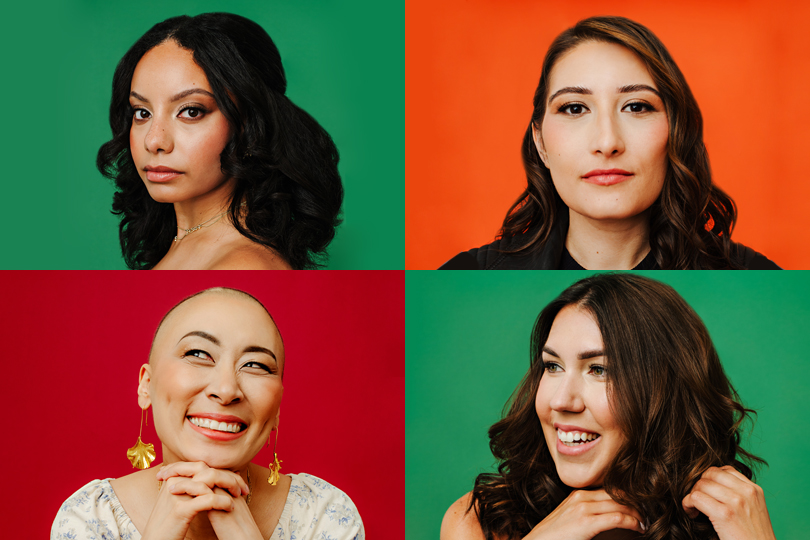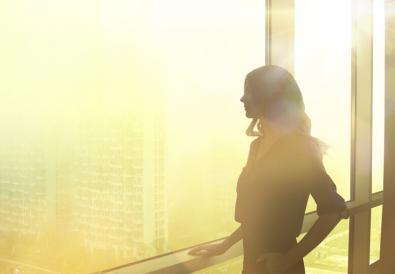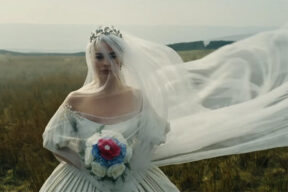What Canadian women in their 20s and 30s want you to know about the importance of self-advocacy and breast cancer…
By Adriana Ermter
I never imagined Lana Del Rey’s “Young and Beautiful” would ever mean more to me than simply a favourite song from a favourite movie, The Great Gatsby. Then I was diagnosed with breast cancer. The lyrics—Will you still love me when I’m no longer young and beautiful? Will you still love me when I got nothing but my aching soul?—that I’d sung for years at the top of my lungs, driving my car with the windows rolled down, the wind whipping my hair, took on new meaning.
Del Rey’s song reflects Daisy’s uncertainty of Gatsby’s love and their future, but for me, freshly divorced and single, the haunting words combined with a breast cancer diagnosis felt like any youthfulness I had was now ripped away. Never did I ever think I would be diagnosed with breast cancer. I thought I was immune. No one in my family had it and I wasn’t even close to being 62—the average age the American Cancer Society says most women are when they are diagnosed. The Government of Canada agrees, noting that 83 per cent of all breast cancer cases occur in women 50 years and older. Except that now, younger women are the fastest growing age group for diagnosis.
You, me, them…we’re not too young anymore.
Proof is a new Ottawa-based study published in the Canadian Association of Radiologists Journal that declares that the rates of breast cancer in women in their 20s has increased by 45 per cent over the past 35 years. For women in their 30s, the increase is 15 per cent; for women in their 40s, it’s nine per cent. All because the “young and beautiful” have been denied routine diagnostic breast cancer screening for decades; forced to wait for their first mammogram until the age of 50.
This annual mammogram rule is changing, slowly, from province to province to provide women access to their first mammogram at 40 years. This is thanks to advocacy groups with campaign’s like Dense Breasts Canada’s “Not Too Young,” who are helping disrupt the status quo for screening, ensuring that every woman has the best chance to find and fight breast cancer early. As someone who had to fight for six months before my lump was taken seriously and I received the screening I needed and deserved, know that the fight is real.
So, take your health seriously. Go to the doctor, book your mammogram appointment and advocate for what you need for your body, your peace of mind, yourself. And read what four women diagnosed with breast cancer in their 20s and 30s want you to know now.
Robin, diagnosed at 24
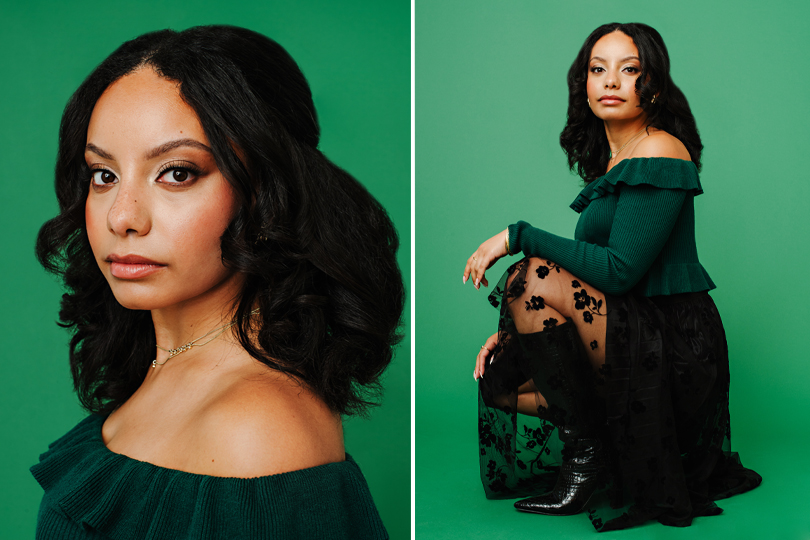
“The biggest barrier to my diagnosis was my age. Being 23/24, multiple healthcare professionals told me I was “too young for cancer.” During this time, the cancer grew rapidly, and the lump doubled in size before I was diagnosed. After a year of the tumour growing, I had to push my GP to send me for a biopsy to get a definitive answer.
The doctor who diagnosed me was the same one who initially dismissed my concerns. He delivered the news as if it were a joke saying, “Haha, so it turns out it is cancer,” leaving me in shock and disbelief.
Initially diagnosed as stage 2 ER+ PR+, I began with fertility treatment and underwent six rounds of FEC-D chemotherapy. This was followed by a lumpectomy and a matching breast reduction. During radiation therapy, I learned the tumour was also HER2+, making my diagnosis Triple Positive. I then went through 22 rounds of immunotherapy. I am currently in medically induced menopause, which has made weight management difficult and caused hot flashes.
My diagnosis delayed my paralegal program by a year and a half. As I was young and not settled in my career, I didn’t have health benefits and had to pay for fertility treatment and medications out of pocket, relying on government grants and compassionate meds programs. I continue to experience financial strain due to the cost of my daily pills and monthly injections.
I am doing well now. This is my first year since treatment, and I’m starting to feel like myself again. However, I don’t think I’ll ever feel normal again. It’s not normal for a 27-year-old to be in menopause. I’ve accepted my new normal, but it doesn’t feel normal.
I’ve learned to advocate for myself and my health. I’ve discovered resilience and strength within me. After this experience, I know I can accomplish anything I set my mind to.
I want other young women to know to trust their intuition. You know your body best. If something feels wrong, speak up and push to be heard and taken seriously. Unfortunately, breast cancer in younger women is often diagnosed at later stages and tends to be more aggressive because they are dismissed as “too young” and aren’t educated on how to check their breasts. Breast cancer doesn’t discriminate based on age, race, or gender. I’m living proof of that.”
Cassandra, diagnosed at 28
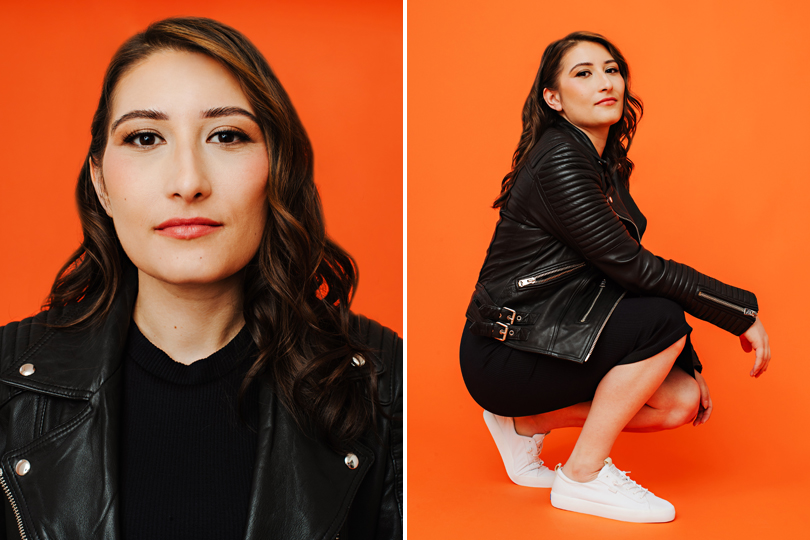
“Hearing the words “you have breast cancer” at the age of 28 completely crushed my world. My entire life changed in an instant and it’s hard to believe and process how much has happened in such a short period of time.
Since I had no children and starting a family is something I desired in the future, I now had to plan and undergo fertility procedures prior to starting chemo. My new normal became daily hospital visits while simultaneously dealing with unanswered questions related to my cancer diagnosis. There was still so much uncertainty surrounding my life, such as the stage of my cancer, future family planning, all while preparing myself emotionally and physically for my long journey of chemotherapy and surgery ahead. On top of that, while administering my fertility injections and preparing for my egg retrieval I ended up getting COVID. I felt like I couldn’t catch a break.
Fast forward, I found out I had Stage 1 Invasive Ductal Carcinoma ER/PR negative and HER 2 positive. Shortly, after my diagnosis, I discovered I carried the BRCA 1 gene. I completed eight rounds of chemo, followed by 18 rounds of Herceptin and lastly, I had a double mastectomy with immediate reconstruction.
One of the hardest experiences through my journey was losing my hair and dealing with the physical challenges of removing my breasts. Cancer has taken so much from me and at certain points in my journey I began to lose sight of myself. After losing my hair I struggled to recognize myself, I knew that this journey was going to be a drastic change for me!
All I wanted was for my cancer journey to be over and for life to return as I previously knew it. But that’s the thing, life could never return to the way it was as my cancer journey will always be part of my story. I will admit that some days are better than others, some days I feel defeated. It really is a roller coaster of emotions.
While I grapple with daily exhaustion, managing my lymphedema, alongside navigating my mental health and processing everything I’ve endured, I’m steadfastly committed to living my best life and embracing what lies ahead! Today, I stand victorious on the other side of my cancer journey, yet I know that the shadow of cancer still lingers as a constant reminder that even in the brightest moments, darkness can return. But even in the face of this uncertainty, I refuse to let fear define me.”
Nina, diagnosed at 32
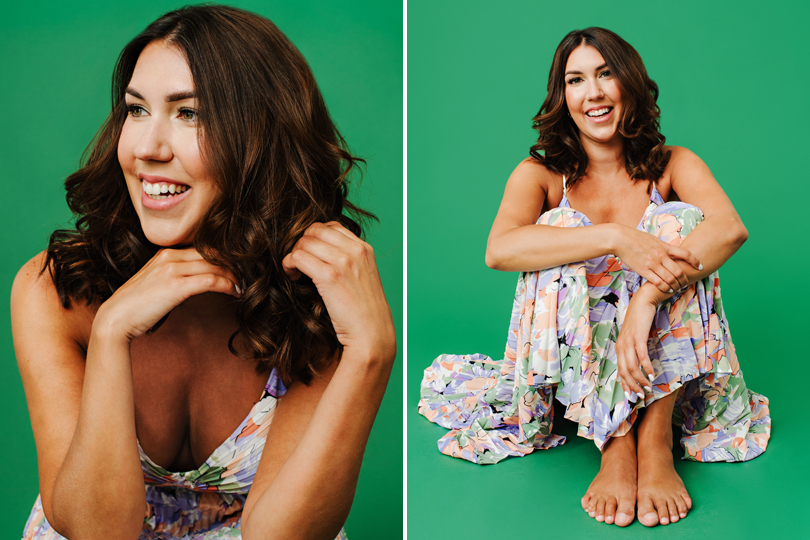
“At the age of 32, my life took an unexpected turn when I was diagnosed with breast cancer. The journey to this diagnosis was fraught with frustration and a sense of being dismissed. Despite experiencing clear symptoms, I was initially met with skepticism and told by one breast centre that I would need to wait nearly a year for a mammogram and ultrasound, as if my age made my concerns less valid.
Determined not to be silenced, I took matters into my own hands, calling multiple centres and persistently seeking cancellation appointments. When the diagnosis finally came, I was devastated but also relieved that my self-advocacy had led to early detection. Trusting my intuition, despite being made to feel like I was overreacting, proved crucial.
My treatment regimen was gruelling: neoadjuvant dose-dense AC-T chemotherapy, a lumpectomy, and a sentinel node biopsy. When the biopsy results were inconclusive, I underwent a complete axillary node clearance as a precaution, followed by 20 rounds of radiation. I am now on a five-year course of endocrine therapy.
The side effects of my treatment have been challenging. As my cancer is estrogen receptor-positive, I am in medically induced menopause, causing joint and muscle pain, and vaginal atrophy. The uncertainty surrounding my fertility weighs heavily on me. Emotionally, I grapple with the possibility of not being able to carry children and the relentless anxiety about recurrence. Yet, I find strength in my resilience, even though the exhaustion from long-term treatment can be overwhelming.
To other young women, I want to say this: you deserve access to screening if you notice any changes in your body. You deserve to be heard and to have doctors who support you. I will forever advocate for change, ensuring that no one else feels dismissed or invalidated. Trust yourself and fight for your health—you are worth it.”
Angie, diagnosed at 39
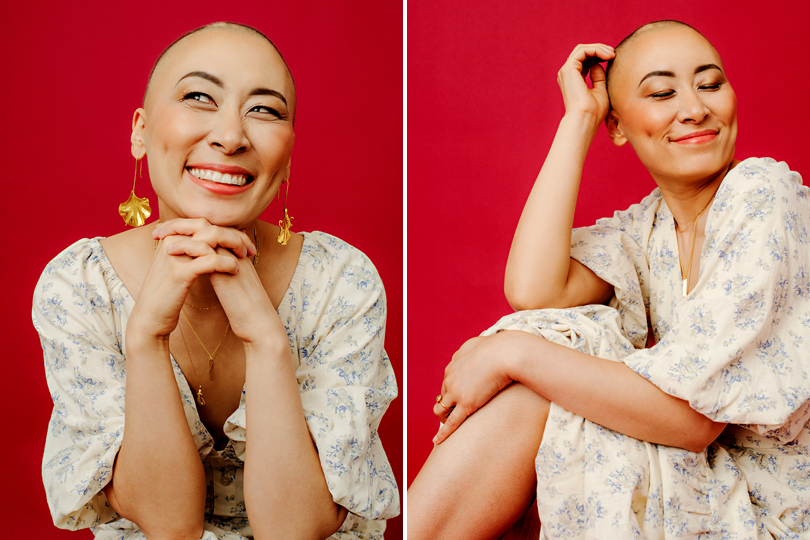
“I do wish I had gotten a mammogram and biopsy the first time I found the lump so I could have gotten my diagnosis faster. Unfortunately, I felt like I had to advocate for myself but I’m also grateful I can speak up for myself. I don’t hold any resentment towards my family doctor. I don’t think the system supports healthcare workers enough and there needs to be HUGE changes in how we screen young people for early detection of cancer.
My biggest source of support has come from my family, and friends. I’m grateful I was also doing therapy before cancer, and I’ve learned some valuable tools dealing with difficult emotions and trauma. That’s not to say that it has been easy. For my mental health – I try my best to take it literally one minute, one hour, one day at a time. I try not to dwell too much on the past or future. Staying present, and practising gratitude has helped energize me and kept my mind from going to dark places. If I do feel negative emotions, I try my best to honour those feelings instead of running from them.
My current challenge is simply having the energy to be there for my five-year-old daughter. I know it’s been hard for her and it breaks my heart. She misses her “old mommy.” Physically, I’m just always uncomfortable, heartburn, digestion issues, chronic fatigue and just not having the same amount of energy before chemo. Socially, it’s been hard as a young adult. I miss socializing, being with friends, driving myself to places, and missing my job as a photographer. I had to take a huge step back from work since my job as a photographer is incredibly physical. I’ve lost a lot of potential opportunities which has made things financially challenging.
Today, I am hopeful. I received news that my oncology team feels optimistic about my pathology results. My life has changed in every way, from being more conscious of my nutrition, my physical health, and spirituality.
I learned that I need to love myself in all versions of myself. Life is too short to dwell in self-doubt and remain in toxic situations and relationships.
My message to others is this: advocate for your health always. Our health care system isn’t perfect and unfortunately, we may have to do the heavy lifting for ourselves sometimes. Find health practitioners who will advocate for you too. Trust your instincts and keep pushing your doctors to take a deeper look at any chronic health concerns. Take care of your hormonal health, eat well, exercise, and be kind to yourself.”
To read what six more women have to say about their breast cancer experience, you can go to densebreastscanada.ca/not-too-young-2024.

